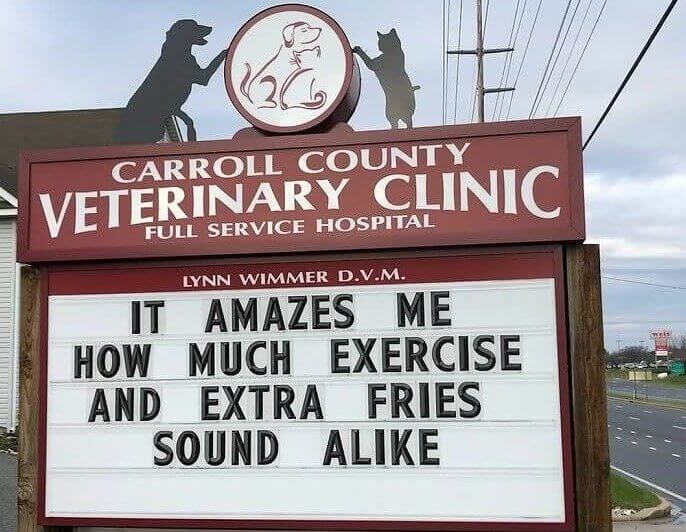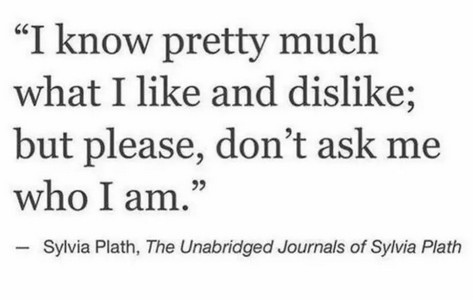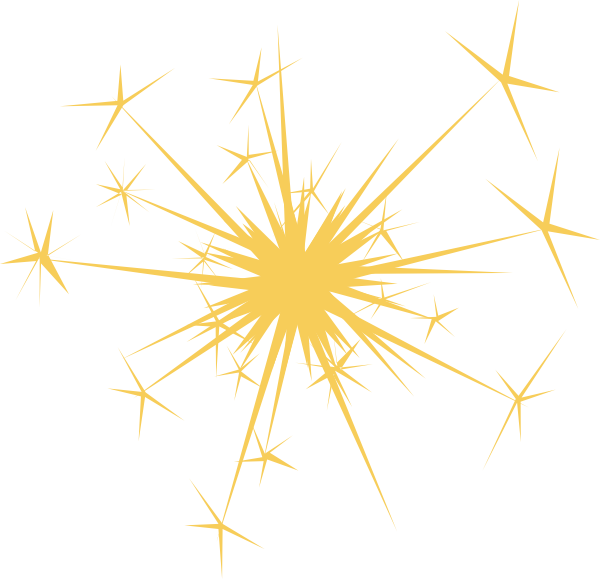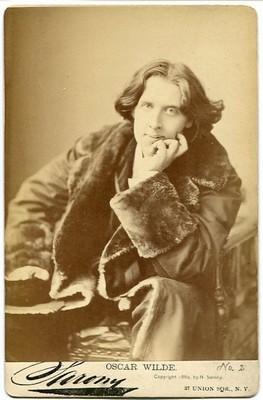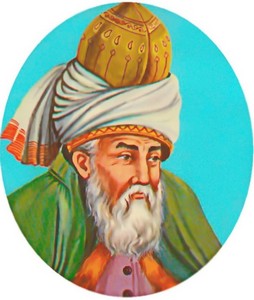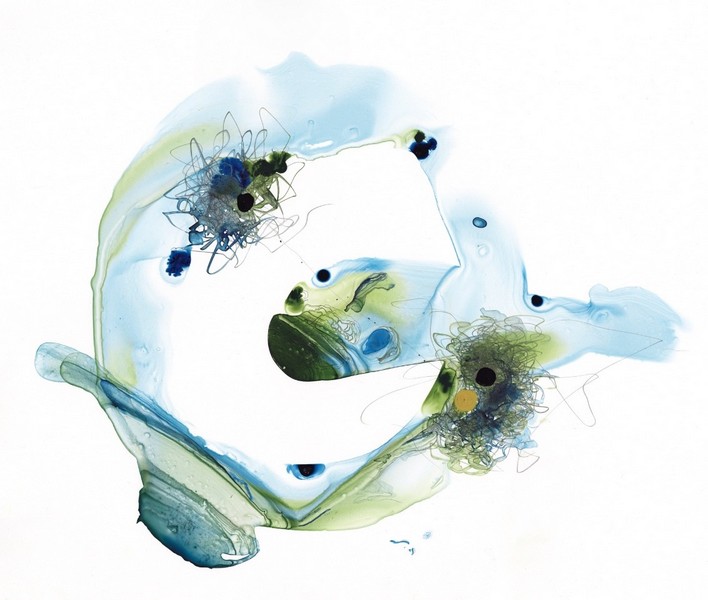TAT Forum
May 2023
*
Receive new-Forum notifications each month
Not getting your notifications?

Let your voice be heard
Enjoy the benefits of TAT membership
Become a TAT member
Help support TAT;
become a member today

|
As an Amazon Associate, TAT earns from qualifying purchases made through links on our website. |

Convictions & Concerns
TAT members share their personal convictions and/or concerns
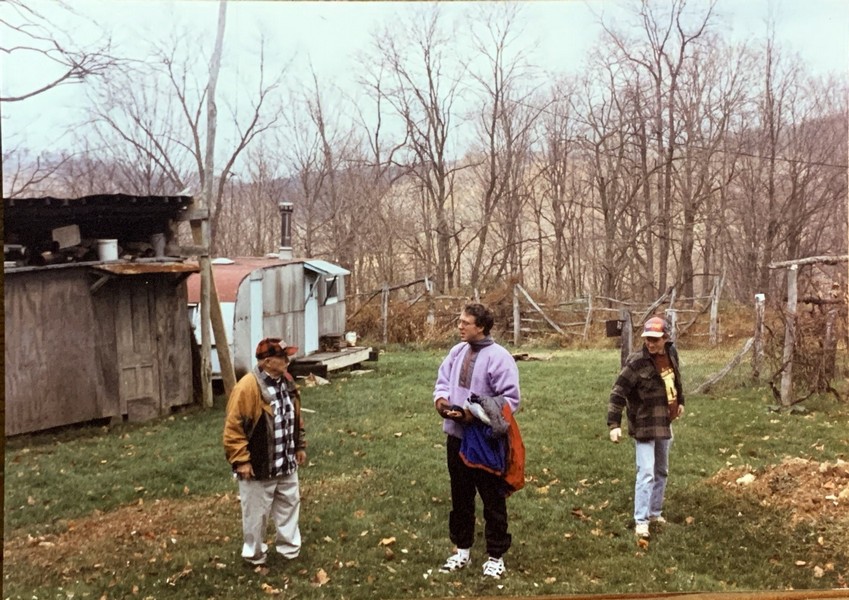
Looking Back
Reflecting on what has stuck with me from the Richard Rose farm, thoughts, memories, etc., several things came to mind, not least of which is friendships formed. I don't want to be dismissive of this fact, but I guess it goes without saying that without these bonds this medium and message wouldn't exist. Though we often did our own things, even spending time in solitude, without the help of friends and the contact and communication of friendship, and the social aspect of community that keeps people motivated, grounded and in touch with one another, I don't think most of our spiritual efforts would thrive.
To that effect, when I think about farm life and reflect about what has stuck with me, I would use my memory of the farm and my efforts there as an opportunity to pass along anything of value to other interested seekers. Consequently, I would stress that there are three practices or disciplines that farm life allowed me to exert which I consider a kind of Holy Trinity of spiritual pursuit....
 See the complete essay.
See the complete essay.

~ Thanks to Danny S. His reflection on times past was triggered by copies of a note from Danny during an early-1990s solitary retreat to Art Ticknor, the acting farm manager, who made some teasing notes on it, and Art's reply to Danny ... sent to Danny and Art by Shawn Nevins all these years later along with the above photo of the trailer that Art stayed in when not staying in the farmhouse. Richard Rose is the leftmost person in the photo. (Neither Danny nor Art is in the photo.) Comments or questions? Please email the .


TAT Foundation News
It's all about "ladder work" – helping and being helped
Richard Rose, the founder of the TAT Foundation, spent his life searching for the Truth, finding it, and helping others to find their Way. Although not well known to the public, he touched the lives of thousands of spiritual seekers through his books and lectures and through personal contacts with local study groups that continue to work with his teachings today. He felt strongly that helping others generates help for ourselves as well in our climb up the ladder to the golden find beyond the mind.
Call To Action For TAT Forum Readers
You can help! A volunteer is producing shareable text-quote and video content of Richard Rose and TAT-adjacent teachers. We need your suggestions for short, provocative 1-3 sentence quotes or 1 minute or less video clips of people like Rose, Art Ticknor, Bob Fergeson, Tess Hughes, Bob Cergol, Bart Marshall, Shawn Nevins, Anima Pundeer, Norio Kushi, Paul Rezendes, Paul Constant, & other favorites. (An example here is selected by the TAT member who volunteers to oversee the Instagram account.) Please send favorite inspiring/irritating quotes—from books you have by those authors, from the TAT Forum, or any other place—to . If you have favorite parts of longer videos (ex: from a talk at a past TAT meeting), please email a link to the video and a timestamp. Thank you!
|

Project: Beyond Mind, Beyond Death II
We've had 14 additional years of monthly TAT Forum issues since then. And we're getting ready to launch a project to solicit recommendations from all readers for a 2nd volume of BMBD from the seven years of monthly issues spanning January 2008 to December 2014. Our approach will be to have a brief, interactive survey each week for participants to rate the items in one issue of the Forum for inclusion in volume II. That will take about 20 months, during which time volunteer co-editors Abhay D. and Michael R. will arrange the selections into chapters and organize the book's contents. Within 2 years BMBD II should be available in paperback and e-book formats.
|

|
TAT Foundation Press's latest publication Passages: An Introduction and Commentary on Richard Rose’s Albigen System The latest book from the TAT Foundation Press, Passages: An Introduction and Commentary on Richard Rose’s Albigen System, is now available in print and Kindle versions on Amazon.com. Mike Gegenheimer and Shawn Nevins combined their experience with Rose's teachings to create this introduction to Rose's work. Passages highlights the tools and techniques for self-realization that Rose recommended. It is a concise yet deep plunge into these valuable spiritual teachings.
|

|
Random rotation of |

2023 TAT Meeting Calendar
February Virtual Gathering: Saturday, February 4, 2023
|

|
See TAT's Facebook page. |

TAT's YouTube ChannelHave you seen the TAT Foundation's YouTube channel? Subscribe now for spiritual inspiration (and irritation)! Volunteers have been updating the channel with hours of new content! They've also curated some great playlists of talks by Richard Rose, teacher talks from recent & not so recent TAT meetings, episodes of the Journals of Spiritual Discovery podcast, and other great TAT related videos from around the internet. Featuring: Richard Rose, Bob Cergol, Shawn Nevins, Bob Fergeson, Mike Conners, Anima Pundeer, Norio Kushi, Bart Marshall, Paul Rezendes, Tess Hughes, Art Ticknor, Howdie Mickoski, Shawn Pethel, Tyler Matthew and other speakers. This month's video is Richard Rose: You Have To Fight For Enlightenment (30 seconds).
|

TAT Talks
In honor of the TAT Foundation's 50th Anniversary, we're excited to announce the launch of "TAT Talks"! TAT Talks is a new regular online event created to both inspire spiritual seekers and to share and preserve Richard Rose's teachings. Guest speakers will feature those who worked with Rose personally and were influenced by his approach to finding the answers to life's biggest questions. Join us online for a 90-minute conversation and interactive discussion as we seek true self-knowledge through self-examination. The virtual event is being offered for a minimal fee of $5. If possible, please consider donating a larger amount (the drop-down menu below has more options). Your generosity will help defray the many costs incurred in preparing the new TAT Center. We deeply appreciate your support! Please register to receive Zoom details. The registration deadline for this event is Friday, May 12, 2023. The inaugural TAT Talk, a discussion with Art Ticknor, is on Saturday, May 13th at 12 PM ET (until 1:30 PM ET) via Zoom. Art was a student of Richard Rose beginning in 1978 and worked on the problem of his self-definition for a quarter of a century until an intense realization in 2004. He is author of the books Solid Ground of Being: A Personal Story of the Impersonal, Beyond Relativity: Transcending the Split Between Knower & Known and Sense of Self: The Source of All Existential Suffering?, and coauthor with Anima Pundeer of Always Right Behind You: Parables & Poems of Love & Completion. Art currently lives a life of la dolce far niente, leads the Gainesville Florida-based Philosophical Self-Inquiry Discussion Group, and organizes several group retreats most years. For more information, visit Self-Discovery Portal. For any questions related to the event, please email . |

Local Group News
Groups with new updates are featured below. Link here for a complete listing of local groups.
![]()
|
|
![]()
|
- Foreword-Introduction for April 23 |
![]()
|
- Wed, May 3: "Are you in touch with an inner guidance?" |

Members-Only Area
A password-protected section of the website is available for TAT members. (Note that there's an occasional glitch that, when you try to link to the members-only area or a sections within it, you'll get a page-not-found error. If you try the link a second time, it should work.) Contents include:
- How you can help TAT and fellow seekers,
- Audio recordings of selected sessions from 2008–2019 in-person meetings and from February and November 2021 Zoom meetings,
- Resources and ideas for those planning a group spiritual retreat,
- Photographs of TAT meeting facilities, the Richard Rose gravesite, a rare 1979 photo, and aerial photos of the Rose farm,
- Presenters' talk notes from April TAT meetings in 2005–2007, and
- TAT News Letters from 1996–2013 and Annual Retrospectives from 1973 thru 2011. The Retrospectives from 1973–1985 were written by Richard Rose and are replete with ideas on the workings of a spiritual group—rich historical content.
- TAT policies, TAT business meeting notes, and other information.
Latest recordings:
 TAT's Novemeber 2021 online gathering, titled What Do You Really, Really Want From Life?: 3.5 hours of selected sessions.
TAT's Novemeber 2021 online gathering, titled What Do You Really, Really Want From Life?: 3.5 hours of selected sessions.
 TAT's February 2021 online gathering, titled In Thought, Word and Deed : 2.5 hours of selected sessions.
TAT's February 2021 online gathering, titled In Thought, Word and Deed : 2.5 hours of selected sessions.
 TAT's August 2019 Workshop was titled Beyond Mindfulness: Meditation and the Path Within and included three guest speakers who each led separate workshops. The following audio recordings are now available in the members-only website area:
TAT's August 2019 Workshop was titled Beyond Mindfulness: Meditation and the Path Within and included three guest speakers who each led separate workshops. The following audio recordings are now available in the members-only website area:
- "Mindfulness. Is it just another spiritual buzzword?" with Bob Cergol,
- "The Path of Direct Sensory Perception" with Bob Harwood, and
- "The Art of Mindfulness is the Passion for Truth" with Paul Rezendes.
 TAT's June 2019 Spiritual Retreat Weekend was titled Between You and the Infinite. The following audio recordings are now available in the members-only website area:
TAT's June 2019 Spiritual Retreat Weekend was titled Between You and the Infinite. The following audio recordings are now available in the members-only website area:
- "Coming Home (aka The End of Seeking)" by Don Oakley, and
- "What's in the Way?" by Eshwar Segobind.
 TAT's April 2019 Spiritual Retreat Weekend was titled Once in a Lifetime is Now. The following audio recordings are now available in the members-only website area:
TAT's April 2019 Spiritual Retreat Weekend was titled Once in a Lifetime is Now. The following audio recordings are now available in the members-only website area:
- "Recognizing the Human Dilemma" by Norio Kushi,
- "Strategies for Self-Realization" by Bart Marshall,
- Untitled session by Paul Hedderman, and
- "A Session in the Now" by Paul Rezendes.
Please us if you have questions. (Look here for info on TAT membership.)

Amazon and eBay
|
As an Amazon Associate TAT earns from qualifying purchases made through links on our website. TAT has registered with the eBay Giving Works program. You can list an item there and select TAT to receive a portion of your sale. Or if you use the link and donate 100% of the proceeds to TAT, you won't pay any seller fees when an item sells and eBay will transfer all the funds to TAT for you. Check out our Giving Works page on eBay. Click on the "For sellers" link on the left side of that page for details. |

Your Contributions to TAT News
TAT founder Richard Rose believed that working with others accelerates our retreat from untruth. He also felt that such efforts were most effective when applied with discernment, meaning working with others on the rungs of the ladder closest to our own. The TAT News section is for TAT members to communicate about work they've been doing with or for other members and friends. Please your "ladder work" news.


Humor {(h)yo͞omər}
"One thing you must be able to do in the midst
of any experience is laugh. And experience
should show you that it isn't real, that it's a
movie. Life doesn't take you seriously, so why
take it seriously." ~ Richard Rose, Carillon
|
Exercise?
|

|
~ Self-inquiry seeker humor thanks to Dan McLaughlin, from The Unabridged Journals of Sylvia Plath. |
|
What Will Make Me Happy?
|

 We enjoy presenting humor here from TAT members and friends. Please
your written or graphic creations. Exact sources are necessary for other submissions, since we need to make sure they're either in the public domain or that we have permission to use them.
We enjoy presenting humor here from TAT members and friends. Please
your written or graphic creations. Exact sources are necessary for other submissions, since we need to make sure they're either in the public domain or that we have permission to use them.

Inspiration & Irritation
Irritation moves us; inspiration provides a direction
The Dazzling Dark
An Interview with John Wren-Lewis
~ Thanks to Shawn Nevins, who wrote:
I was surprised to stumble upon this interview with John Wren-Lewis. It's quite good, really sums up his views without having to read the dozen or so papers he published. Alas, as in all of his writings, he admits he doesn't really know what will bring about awakening. His candor and refreshing take on the spiritual search was always attractive to me.
Here's some notes and direct quotes:
There's a hyperactivity of the survival instinct. The survival instinct overplays its hand. It makes too much effort to keep you alive.
The identification with the role is what causes all the trouble.
"… So I would say that the thing we've got to look for is a means of enabling us all to wake up to the fact that we're acting the role consciously. That the role is our very being and that it isn't something we're identified with. We're doing it because we are god wanting to do it, and I think the moment that happens all the nasty roles vanish."
"I am myself in a sense a direct expression of god who is there to be grateful to and yet gratitude is the very name of the game. William Blake who is another poet I greatly admire actually said once that gratitude is heaven itself, meaning that as I now understand it, it's not one is grateful for heaven, heaven is being grateful. And for that reason one of the things that I would suggest to anyone who wants to try to get close to this, that's what I think everybody's got to do, I think everybody's got to become a scientist. They've all got to experiment, experiment like anything.
“One of the experiments that I would suggest trying is catching moments of gratitude. And seeing in fact that this is more than just being grateful for a specific thing that's happened to you. The energy that is manifesting itself in those moments of gratitude is the energy that is actually keeping you going all the time. and I think that might be one route to beginning to awaken from the dream, but I don't know how to awaken from a dream without a shock."

|
It's as if a king has sent you to some country to do a task, and you perform a hundred other services, but not the one he sent you to do. So human beings come to this world to do particular work. That work is the purpose, and each is specific to the person. If you don't do it, it's as though a priceless Indian sword were used to slice rotten meat. It's a golden bowl being used to cook turnips, when one filing from the bowl could buy a hundred suitable pots. It's like a knife of the finest tempering nailed into a wall to hang things on. You say, "But look, I'm using the dagger. It's not lying idle." Do you hear how ludicrous that sounds? For a penny an iron nail could be bought to serve for that. You say, "But I spend my energies on lofty enterprises. I study jurisprudence and philosophy and logic and astronomy and medicine and the rest." But consider why you do those things. They are all branches of yourself. Remember the deep root of your being, the presence of your lord. Give yourself to the one who already owns your breath and your moments. If you don't, you will be like the man who takes a precious dagger and hammers it into his kitchen wall for a peg to hold his dipper gourd. You'll be wasting valuable keenness and forgetting your dignity and purpose.
~ Rumi, The Soul of Rumi: A New Collection of Ecstatic Poems
|

|
"Profound boredom stems from an abundance of uninterrupted time spent in relative solitude, which can lead to indifference, apathy, and people questioning their sense of self and their existence—but which Heidegger said could also pave the way to more creative thinking and activity."
|

|
In rapport,
Not in the mind as thought,
Alert and awake now,
Still, silently aware of its depth,
~ Thanks to Mike Gegenheimer. Photo from unsplash.com by Arthur Poulin. |

Please
your thoughts on the above items.

Reader Commentary
Encouraging interactive readership among TAT members and friends
A reader wrote that what would make the Forum more interesting would be:
Hearing from people who are searching—and have questions instead of those providing endless advice and "answers." What challenges they are facing. What their doubts and questions are. How they perceive their path is going. What they are doing in their lives. Where they think they will end up. Etc., etc.
Can you help make the Forum more interesting?

 The Reader Commentary question for this month is:
The Reader Commentary question for this month is:
What about the idea of 'retreating from untruth' makes sense to you?
Thanks to Sergio F. for the Reader Commentary question for the May 2023 TAT Forum. Responses follow:

 From Jeroen R:
From Jeroen R:
It seems that my understanding of Mr. Rose's teaching changes every few weeks, even after more than a decade. So the following is just my current understanding. To me "retreating from untruth" is the core of Mr. Rose's teachings. Untruth covers a lot more than I thought at first. My mind is like a sports commentator who after the goal screams "GOALLLLL". This always happens after the fact as the goal has already been scored and it was already seen by the audience. My sense of I seems to come into existence in a similar way. So when there is a thought, emotion, or bodily sensation, next thing the mind automatically goes "my thought", "my emotion" or "my body". This doesn't need to be an explicit thought but can also be a felt sense. In any case, with this act 'me' has been created into existence and now a part of that 'me' has tasked himself with the letting go of this habit but can't do this in any active way (I'm afraid that would create an even more difficult to release 'me'). Just watching and stopping the me-ing whenever it comes into awareness seems to be the only way. Stopping the me-ing needs to happen not by suppressing, but by turning the inner head away so that—hopefully—some day the habit runs out of fuel. Retreating from the untruth of 'me'.
 From Len S:
From Len S:
Retreating from untruth deals with my personal experiences ... not a projected outcome.
Retreating from untruth (to me) means when the Penny that blots "The Sun" is reduced, i Become less of myself (un-Becoming self).
 From Patrick K:
From Patrick K:
I've heard this being mentioned in various ways in TAT:
Retreating from untruth, backing away from the foolish, retreating from error, retraversing the ray of creation, transmutation of the lower uses of energy for the higher, substantiality is inversely proportional to ponderability (Franklin Merell Wolff), dropping lesser values and striving for purer and purer values and also maybe becoming more just “in the world” as opposed to becoming more “of the world”. The last one is credited to Jesus.
Here are some ways I use the exercise of “retreating from untruth”:
- Becoming aware of underlying motivations and when I become aware, then to ask myself if I would consciously chose to be motivated in that way. But generally when I see/become aware of foolish motivations, the seeing itself is enough to dissolve it. Each seeing of how I am constructed like this is a step backward into greater truth because I have now lost something I had previously acquired from conditioning.
- I have learned that I operate from “identification”. Identification is basically a reaction one way or another. It is a feeling of being a something which is subject to relativity, e.g., for or against, good me, bad me, happy me, sad me, etc. Identifications are reified beliefs about who I am on a feeling level. So instead of seeking some idea I have about what truth may be (seeking in an outward imaginative direction), I undo the untruth, the “misidentifications” that I am identified with. Carl Jung calls it “bringing the unconscious to the conscious”.
- The self-inquiry method of using “the view is not the viewer”. Anything I see about me: characteristics, archetypes, reactions, prides, fears, perceptions, convictions, beliefs, desires, ways I distract myself, etc., fall into the category of the “view”. What I am is in the direction of the “viewer” which I cannot see but I do view from it. So to put everything in the “view” category is to clearly define what is not me. Anything in the view category was acquired, such as the body and all the psychological body/mind characteristics. Self-inquiry is working to keep pushing that dividing line backward from the view toward the viewer until all of the not-me is known and in the view. Then hopefully I fall/stumble upon the real truth of who I am.
- All activities/instincts I partake/indulge in, that are of Robert S. DeRopp's lesser games; games that go beyond my basic survival needs are riled in “ego”. That is me trying to polish my identity, trying to make a more solid identity in the world. DeRopp's The Master Game: Pathways to Higher Consciousness, the spiritual game of self-definition is the only game of life that is not going to fuel the egocentric identity. So to reach out with desire to conquer all the lesser games of life is the natural tendency of man. General man's energy is pointed outward toward the world; self-inquiry man's energy/attention/curiosity is mainly pointed inward toward his reactions/thoughts/feelings/beliefs. Self-inquiry man works to conserve all that wasted outgoing energy and move away from all ego-fueling behaviours. That is how I see “retreating from untruth”. And not to do this out of a superior moral state of doing what is right over what is judged to be wrong, but to follow an inner longing for truth, wholeness, sanity, peace.
 From Sergio F:
From Sergio F:
For me it makes sense because the mind is very creative and can develop stories that capture our limited attention and time. I see "retreating from untruth" as a way to express the activity of intentionally examining and discovering stories that won't lead us to Truth so that we can let them go. And in that way, gradually, freeing our attention/time/energy so that, hopefully, it becomes directed within. Or at least it gets directed towards a less energy consuming story.
Also, as Truth according to mystics is beyond the known, the idea of retreating from known untruths sounds like something practical, while "advancing towards the unknown" would sound a little disorienting as it's not obvious how to move in that direction.
 From Sarah J:
From Sarah J:
The sudden shock of discovering something that I had held dear in this temporal world was untrue led to a brief loss of the powerful illusion of separation. The experience was profound. The stripping away that led to it was harsh and shocking.
This is why ‘retreating from untruth’ makes sense to me.
I didn’t know I was clinging to untruth. Doing so brought comfort. But that untruth was a part of a net that was holding up the illusion of separation. Falling through the hole led to a confusion so intense that I didn’t know who I was. I even thought “I don’t know who I am anymore.” It was all I could think.
The clue for me in what happened is kind of awful. The illusion that shattered was one I used to manage the pain of separation. It was enabling being with others within the experience of being separate.
I haven’t explained the experience. It doesn’t really matter. What has nagged at me in the days since I wrote the above is I think I misunderstood Anima Pundeer. She talked of something like wanting truth more than anything. Like falling in love with it.
I thought “are you kidding me?” I felt she could only be talking about the hoped-for ‘enlightenment’ result because to me the shattering of untruth is pain. ‘Love pain’? How does anyone do that? It sounded like a meaningless concept.
Yet I experience it as paradox in writing this now. Maybe wanting, loving truth is not resisting it? And that the actions of retreating from untruth are the same as not resisting love.
Or?, and? maybe both—for anyone who gets the reference—another paradox: “Love will tear us apart, again...”
This isn’t for the fainthearted. This faint heart didn’t choose this path.
 From JB:
From JB:
I can put effort in to detect untruth at any level I find my self. If I look at anything in the outside world and notice what is false compared with what is less false, I can also, by being as honest and systematic as I can with myself, use this method on my own physical, emotional and mental environments to detect what is false there as well. Retreating from untruth makes sense to me because if I don't already know what is true I can't define it first and chase after it second. It seems sensible to cultivate a sorting method to recognize the obviously false or foolish more quickly, then discriminate between the more or less false in what remains. Detecting untruth seems to be something that can be jump-started mechanically with making lists, using the mind's inclination to compare and judge and then some other way of looking that shows the overall picture.
 From Anima Pundeer:
From Anima Pundeer:
‘Truth lies within’ is a simple statement that made sense to me, and yet how do you go within? Going within widened the view but did not help find the viewer's identity. Backing into Truth by retreating from untruth, as suggested by Mr. Rose, is a commonsensical process. It means taking a step back and looking at the experience that was solidifying my identity. A simple observation process breaks the hypnotic state of identification with the experience/thought/emotion. Certain inner detachment grows towards the life we live and then towards the one living this life. The belief in a ‘separate special me’ becomes loose enough to turn attention towards really looking for what our real identity is.
 From Isaac H:
From Isaac H:
As a strategy for Self-realization, or Truth-seeking, it makes a lot of sense to me. It's honest and practical. If we admit that we don't know what we are, or what the Truth is, then we can't just pick it out of the field of objects and say "that's it, that one there, that's the Truth, got it!" Backing away from what is false narrows our options without us prematurely glomming onto something we then have to build an identity around, defend, etc. I'd ask in response, what doesn't make sense about "retreating from untruth"?
 From Rob-in Leeds:
From Rob-in Leeds:
Ever since I first encountered the concept of "retreating from untruth" in March 2014 TAT Forum it has moved from being a concept to a multifaceted sense of direction.
When I first read Sergio's question: "What about the idea of 'retreating from untruth' makes sense to you?" there was for me an intuition that the three words "retreating from untruth" are wrapped in two incongruous phrases. Before was "What about the idea of... ", and after was "... makes sense to you?" I have sat with that, to me, incongruous, dichotomy for a few days now and while the problem is, mine alone, I will try to explore the dichotomy.
Back in 2014 I was looking for "the truth" and/or "the peace that passeth understanding" as I conceived my idea of the search, while now I try to follow some of the principles TAT Founder Richard Rose articulated over and over in books, writings, talks, lectures, collectively known as the Albigen System. Rose and other TAT authors alternatively expressed "retreating from untruth" as "backing away from untruth". Personally, I am interpreting "backing away from untruth" as keep looking (from where looking happens!) at the view, knowing (sensing) that the view is not me, or the home I am longing for.
Paul Constant quotes Rose in his "Untruth" piece: "The Law of the Reversed Vector states that you cannot approach the Truth. You must become [a vector], but you cannot learn the absolute Truth. We must back into the Truth by backing away from untruth."
My sensed response to Sergio and "retreating from untruth" that I termed as "a multifaceted sense of direction" is that instead of just reading about the laws in Rose's Albigen System, I endeavor to practice and embody them, as ongoing experiments and guiding principles. The multifaceted part is integrating the ideas including: going within, retreating from untruth, becoming a vector, doubt everything, becoming ones own authority, self-definition, friendship, self-inquiry, betweenness, group work, work for the work, and more ... into an ongoing experiment and embodiment of the ongoing search to return home to truth and follow the longing to know oneself, which is calling all beings to return to their true nature, essence, home, source ... the unknowable mystery beyond mind and my stories.
 From Rex H:
From Rex H:
The idea of retreating from untruth is really new to me, put in that way exactly. I at first was arguing somewhat with the idea, and then I realized, we cannot be anything other than what we are. We can only pretend to be different. Of course, that goes really deep, to peel those layers of idealized false beliefs away from our psyche. I see that retreating from untruth is actually the only way to come to what we really are. If we decide we are to be something, that ideal has set us up for failure. We are not "operating" from a real foundation and will always fail to be what we believe we are. The only thing we can do is pretend to be something as an ideal. It's insanity when you really look at that posture. If I retreat and turn my mind away from untruth continually, what I really am can be seen.
I'm still learning about this and so grateful. Thanks for helping us all.
 From BH:
From BH:
A question is: why would you retreat from untruth when you could just go towards truth? The sages and masters who allege they’ve found the truth say that it’s not going to be found outside, and I intuit what they say to have validity. From personal experience, nothing “out there”—no concept or thing I could point to—has felt or seemed to be the unwavering truth or an ultimate certainty or answer of any kind. When I talk about Truth, I mean something that does not come and go or change. It also makes sense to me that real certainty can only come from knowing what I really am.
As I’ve pursued “retreat from untruth” inquiry, surrender has happened to me, and not by my own doing. That has led to what feels like more clarity of seeing and self-honesty. I’ve pushed myself to hold my personal experiences, sensations, thoughts, fears, desires, etc., up to the measure of: Do they come and go? Are they based on something that changes? Are these mine or not mine?
I don’t know what truth actually is. I don’t know what I really am. I don’t feel a real certainty in my current understanding of reality. But a practice of identifying them seems to have borne fruit so far and it makes sense for me to keep using it.
 From Art Ticknor:
From Art Ticknor:
I had no argument when I heard or read from Richard Rose about the strategy of retreating from untruth. I knew I wanted certainty, and it made sense to me that it couldn’t be found with the relativistic mind machinery. When I’d come across Einstein’s thought experiment about trying to determine the speed of two objects moving toward each other in space, it struck me as a perfect example of the certainty conundrum: he could determine how fast object #1 was moving toward object #2 and vice versa, but he couldn’t find an absolute point of reference to determine the actual velocity of either object.
It made sense to me that we could back away from relative certainties and maybe, by some accident or grace, then be drawn into absolute Truth/Certainty. Also from Richard Rose’s teaching, it made sense to me that the eventual direction was going back through where the light is projected into the mind. Using Douglas Harding’s “headless” pointing exercise, I would check back in that direction—and see nothing—until I finally did, in my last solitary retreat. What I saw challenged the keystone in the arch of my faulty feeling-beliefs about what I was, and the mind opened to what I am at the center of my being. In retrospect, it felt like a resistor circuit in my mind had been burned out or blown out. Maybe that’s where the term nirvana comes from, from Sanskrit nirvā ‘be extinguished’, and nis ‘out’ + vā- ‘to blow’.
 From Andreas H:
From Andreas H:
In all of this I have to suspect that we have something like an inner compass that tells us if our direction is on or off course. We may have gone down a certain line of thinking before in our seeking, and now we know first-hand that it is not going to work. We've been down that road before and sense that it would be a mistake to try the same route all over again.
After having tried—and failed—to find an answer through some method or hypothesis, we may come to know what about our way that was misdirected. This gives us a new direction. Our new target might still be off by a mile, and yet we have at least fine-tuned the instrument a little. And so we continue this process, honing in on our ultimate goal of moving closer to something real.
Maybe if we stick it out, this whole process becomes largely intuitive, where we may move with ever-increasing speed toward that which we are looking for.
 From Jerry S:
From Jerry S:
I believe that there can be a motion indicated by our lives through which lies the greatest possibility to elevate or even wreck one's life. Extreme examples of motion are indicated, for example, if one were obsessed with sex, his life would go in that direction. If one were obsessed with love due to an influential heart, he or she might evolve in that direction. If another had a passion for the arts, for a science or some religious or humanistic calling, life would similarly proceed. There is also a more "synthetic" means to set a direction for such motion, though it would be effective also, only for one who truly and deeply desires. Many claim that if a commitment is formed, around which all aspects of one's life eventually evolve, then something either within or outside us is summoned to meet the challenge of the commitment, as if “providence moves in.” Many books have been written about success that is driven or summoned through commitment to make money, climb a mountain, win a race or overcome some handicap, but a passion for the goal is the necessary ingredient. Rose recognized from looking back at his own life and at others' lives, that an important catalyst to that motion is the elimination of competing or distracting demands on our energies, time and attention. It may never be revealed to us whether we form or follow our own destiny, but in a relative dimension, all things are relative, and anything can influence anything, until we might discover otherwise. Rose coined the term “Becoming” to indicate that motion, as a movement retreating eventually from this relative realm.
 From Mark W:
From Mark W:
Retreating from untruth to me is another way of saying it’s a subtractive path with a focus on backing away from beliefs about myself that at some point I come to see as false. That is in contrast to an additive or frontal approach to truth in which I focus on trying to adjust my beliefs about myself according to a better-belief version of myself that I want to become. I look at this positive approach as an attempt to fix myself, and it never seems to work for any significant length of time or for anything relevant to my spiritual search. There’s more than a subtle difference between the positive approach of focusing on getting answers that I think are backed by better beliefs and the subtractive approach, which focuses on asking myself questions about the beliefs I already have about myself and my search as well as contrasting beliefs to see what happens over time, if anything. In addition, I think the value of my subtractive path can be significantly enhanced through celibacy with the intention of developing my intuition. This is why retreating from untruth makes sense to me.
 From Mark C:
From Mark C:
The idea of retreating from untruth for me feels like a whittling down of falsity or useless data/information to get to the capital T Truth. Shawn Nevins used the title of Subtraction for a book he published in 2018 and the retreat from untruth is ultimately a subtraction process. One could start with our many beliefs, some of which are running very much below our level of consciousness of them. Self-Inquiry is how I look or get at my beliefs, but sometimes unexpected life experiences can shed a lot of light on my beliefs as well.
Because I have had a more analytical mind; I have read many books in the past looking for answers or clues about Truth, but this approach has run out of steam for me in recent years. Reading can give you some ideas as to where to look, but ultimately this is more of an additive path than a subtractive one. I have a series of Richard Rose talks on a memory stick in my car and got into my car a few years back after a group retreat only to hear Rose proclaim loudly as soon as I started my car that, "The answer is not in books!"
I have been trying to take a more intuitive path lately and attempting to monitor where my attention/focus is being placed. Sometimes every day tasks can provide data for me if I can stay conscious of what's playing out rather than go into a "default mode" of unconscious operation. I also have to be very conscious of what I devote my energy to because I have noticed that there is a limited supply to work with on a daily basis.
 From Brett S:
From Brett S:
I love the idea of becoming more authentic by becoming less inauthentic. It makes sense to me. A quote that's been on my mind recently is attributed to Philip K. Dicke: “Reality is that which, when you stop believing in it, doesn’t go away.” So retreating from untruth is letting things fall apart and seeing what remains. The hard part for me is judging my ability to judge, trying to uncover the biases of the researcher, finding out the difference between adroit discernment and rationalization. When am I following my heart, and where am I failing to question my beliefs? Discerning truth from fiction (and accepting it) feels like the hardest part of backing away from untruth; I think struggling to do that looks like resistance, defensiveness and, generally, fear.
 From MH:
From MH:
So I can’t get beyond the mind, in my current state. I can’t know anything else. But if I want to move further in self knowledge, the only thing I can do is to examine the thoughts and beliefs as I recognise them in operation and then use that same mind to challenge the thought, or have a question about it.
I am currently exploring my creativity and trying to paint intuitively. It’s direct experience beyond thinking, where I am uncovering blocks and trying to move past them, in the safety of paint on a piece of paper. I recognise all sorts of subtle and invisible messages, that try to keep me safe, from moving into the unknown.
Yesterday I saw a belief system that was so familiar, so close to my way of being, that up to this, I took it to be true, part of my unquestioned world. Yet it was loaded with underlying messages, that are still popping to the surface.
There were visitors in our house (friends of family guests who were staying for the weekend). I was dying to paint. The visitors were fed, chatting to each other, the kids were playing. Eventually I left them to it, and escaped to my studio. I realised I thought I shouldn’t be there, that painting was selfish, indulgent, trivial. I hoped no one would come in, I wouldn’t want to be seen. At the same time I was increasingly aware of a primal drive to express myself in a painting, that had been growing for a few days. And I began to challenge the idea that painting was a forbidden pleasure, and asked myself whose permission I would need anyway, and why I would put this desire on hold, to entertain guests (who were happily entertaining each other, and not my guests anyway). There are so many layers of untruth here, like my duty to visitors, that it wasn’t ok to go off in my own house and do my own thing. That the thing I wanted to do was a trivial pleasure and shouldn’t supersede others needs (needs I assumed ... they didn’t need me to entertain them!).
Even writing this, I feel oh it’s such a little simple thing, not worthy of writing about, but in truth my insides are churning with anxiety, so there is energy here, even though I’m not yet clear of the truth of what it is. I just know I’m knocking something back, uncovering a layer, for me it’s challenging, threatening, I’m taking myself seriously, not ignoring myself and my deeper desires, feeling exposed. Taking a stand. These are not deep philosophical beliefs but deep-rooted personal self-limiting patterns that keep me in the mid range, not drawing attention to myself, safe zone. The untruths are powerful in my life. Maybe uncovering them will begin to allow me to slowly act differently in a way that is more true to myself.
 From Paul Constant:
From Paul Constant:
The idea of retreating from untruth might be frustrating for many spiritual seekers, as it provides no explicit prescription for self-realization. On the other hand, it is genius advice: it discourages the adoption of beliefs and concept structures, which often bind us to a lifetime of self-deceit. The retreat allows seekers to individualize their search, away from error and ignorance. It is "know thyself" in its purest form. When combined with dogged determination, self-honesty, and sincerity, it is lethal to the mind.
|
Next Month Hermann Hesse’s Quotes You Should Know Before You Get Old (9 minutes):
The Reader Commentary question for the June 2023 TAT Forum: Which one of Hesse’s quotes do you like best (or worse), and why? Please your responses by the 25th of May. and indicate your preferred identification (the default is your first name and the initial letter of your last name). "Anonymous" and pennames are fine, too.
|

Q:
What are your thoughts on this month's reader commentary? Please
your feedback.

 Richard Rose described a spiritual path as living one's life
aimed at finding the meaning of that life.
Did you find anything relevant to your life or search in this month's TAT Forum?
Richard Rose described a spiritual path as living one's life
aimed at finding the meaning of that life.
Did you find anything relevant to your life or search in this month's TAT Forum?
|
|

We like hearing from you! Please
your comments, suggestions, inquiries, and submissions.
 Sign up for notices of TAT's four annual events and free
monthly Forums by email on our .
Sign up for notices of TAT's four annual events and free
monthly Forums by email on our .

Founder's Wisdom
Richard Rose (1917-2005) established the TAT Foundation
in 1973 to encourage people to work together on what
he considered to be the "grand project" of spiritual work.
|
Ananda soon became a star.
Chela (devanāgarī: cela) is a Sanskrit word meaning a student or disciple of a spiritual master or guru. Ananda, the student's given name, is a Sanskrit word meaning bliss, happiness, joy. Photo by Nick Kharlanov on Unsplash.
|

|
Definition of Terms
Index of many of the key terms and principles in Rose's work, with brief definitions, from Richard Rose's Psychology of the Observer: The Path to Reality Through the Self by John Kent. |

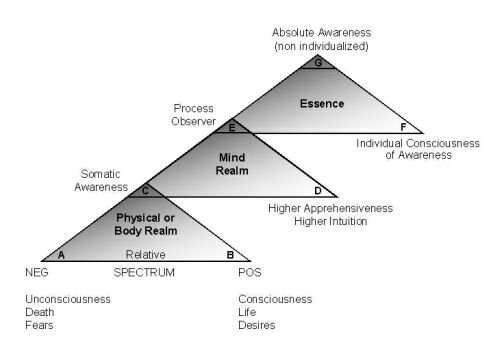
Jacob's Ladder © 2001 Richard Rose. See this transcript of a talk on the topic by Rose.

Homing Ground Update… A spot on earth where people can do retreats and hold
|
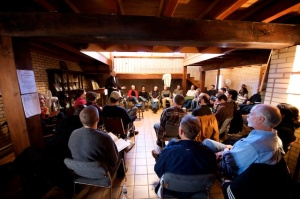
Did you enjoy the Forum? Then buy the book!
Readers' favorite selections from seven years of issues.
Beyond Mind, Beyond Death is available at Amazon.com.





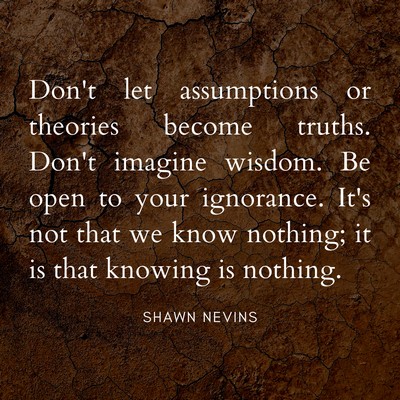 With the intention of increasing awareness of TAT's meetings, books, and Forum among younger serious seekers, the TAT Foundation is now on
With the intention of increasing awareness of TAT's meetings, books, and Forum among younger serious seekers, the TAT Foundation is now on  TAT Press's
TAT Press's 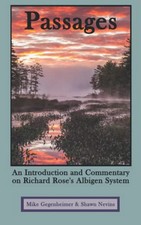
 Please add your review to the
Please add your review to the 
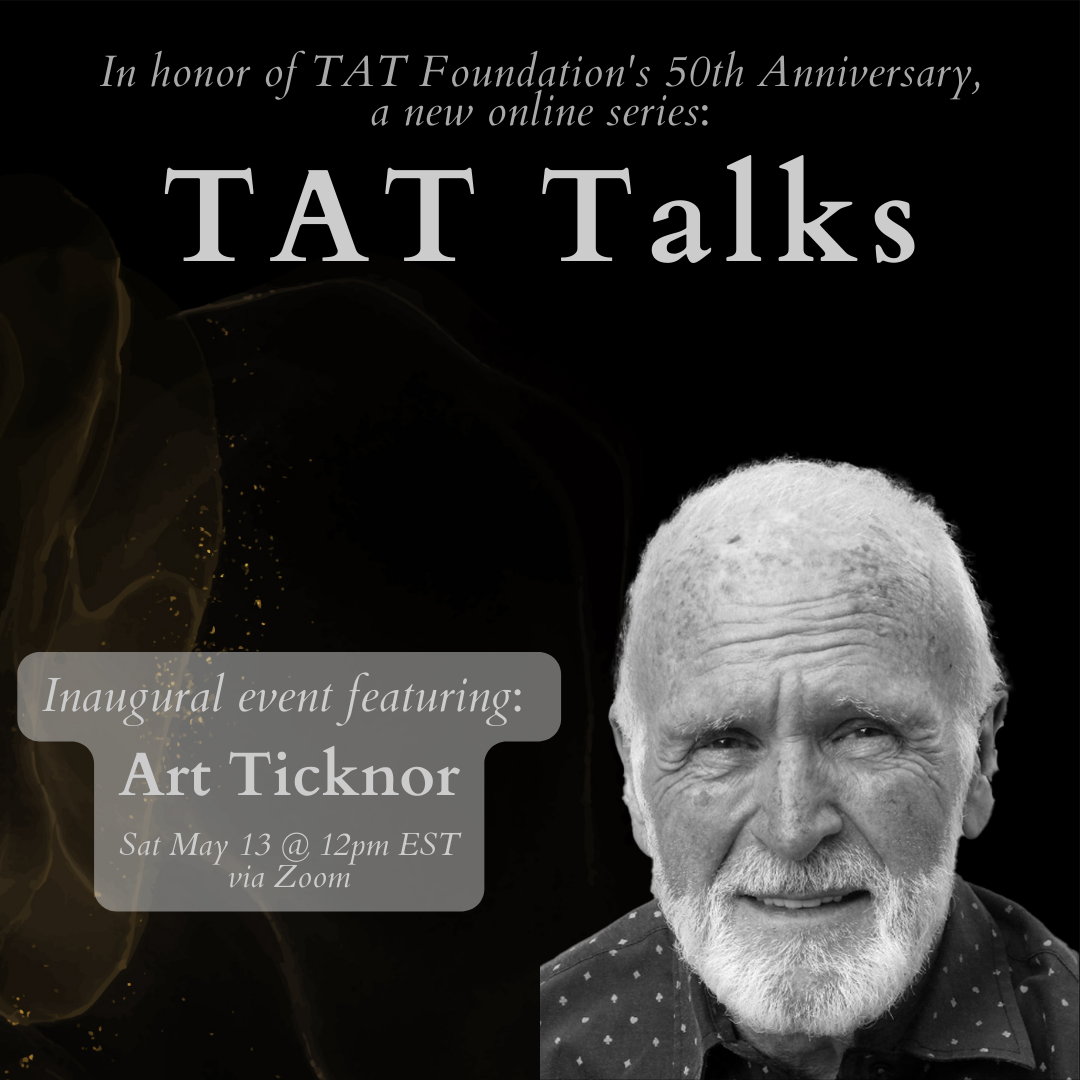
 The Gainesville self-inquiry group is planning a five-night
The Gainesville self-inquiry group is planning a five-night 
